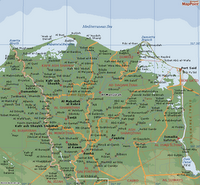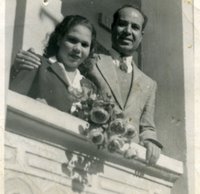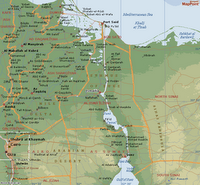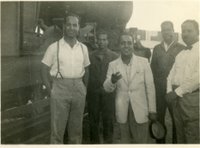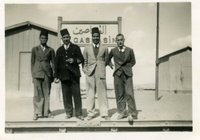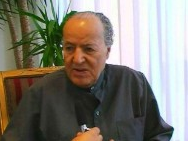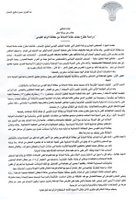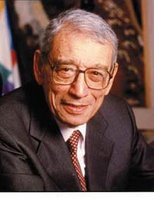 In the post dated 17 August 2006, there was a link to Deutsche Welle Radio program and interviews with several individuals regarding Egyptian ID Cards and religious classification. Since radio stations leave such recordings on their websites for a limited period of time, this particular program is no longer available on the web. Fortunately because of the marvelous technology we have at our disposal these days, a recording of the program was possible to upload to this blog. Because of time limitations on audio blog postings, the recording is presented below in two segments. It is followed with a written translation into English.
In the post dated 17 August 2006, there was a link to Deutsche Welle Radio program and interviews with several individuals regarding Egyptian ID Cards and religious classification. Since radio stations leave such recordings on their websites for a limited period of time, this particular program is no longer available on the web. Fortunately because of the marvelous technology we have at our disposal these days, a recording of the program was possible to upload to this blog. Because of time limitations on audio blog postings, the recording is presented below in two segments. It is followed with a written translation into English.


It began with a brief history of the Baha'i Faith indicating that there are over Five Million Baha'is worldwide and a few thousands in Egypt. It also described the issue of new ID Cards in Egypt, allowing only three religions (Islam, Christianity and Judaism), and leaving the Baha'is as well as other denominations with no identity unless they falsify documents and lie about their religion in order to be recognized and obtain ID Cards. It then spoke of the recent
NCHR workshop on the omission of religion from ID Cards.
First,
Dr. Basma Moussa was interviewed. She indicated that the Baha'i Faith is an independent World Religion, that Baha'is have been viciously and falsely accused of all kinds of nonsense, and that they have not been heard in Egypt because of being a minority. She later commented that Baha'is in Egypt will accept any solution other than lying about their true religion. They will accept "other," "empty space," or even "dashes." She said: "we just want to live!"

Second, was
Mr. Hafez Abou Seada, member of the
NCHR who described the situation of the Baha'is in Egypt, and that the council had received a complaint from the Baha'i International Community, a member of the United Nations non-Governmental Organizations, regarding the inability of Egyptian Baha'is to obtain ID Cards. He said that the Ministry of Interior offered to provide passports to the Baha'is which do not show religious classification. The NCHR's response was that since this could be offered, why then the Government could not do the same with ID Cards, i.e. Cards without religious classification. He then discussed the discriminatory practices against Coptic Christians in Egypt. He also, later in the program, commented on the Coptic-Christian/Islamic conflict in Egypt and that it urgently needs a radical solution.
Third, was
Mr. Morkos Aziz who indicated that the excuse for including religion in ID Cards has been that it is needed for matters inheritance, marriage and divorce. He said that all these matters could easily be handled in many other ways than using ID Cards, such identification can be provided by the religious organizations to which people belong.
Fourth,
Ms. Monaz al-Faqar [sp?], a representative of the
Civil Society Organization suggested two choices to solve this impasse: either omit religious classification from ID Cards, or leave it in and recognize all religions.
The interviewer, then closed by indicating that this Workshop has, at least, provided a forum for dialogue which is leading to further understanding of the rights of citizenship.
 This editorial was published on 29 August 2006 in The Washington Times regarding Qatar's progressive and tolerant stance in the Middle East, and in particular the government's support of the various religious minorities including the Baha'i community.
This editorial was published on 29 August 2006 in The Washington Times regarding Qatar's progressive and tolerant stance in the Middle East, and in particular the government's support of the various religious minorities including the Baha'i community.
